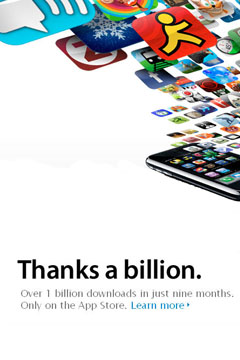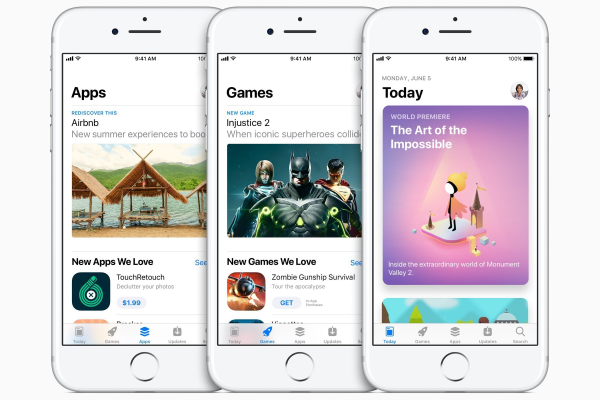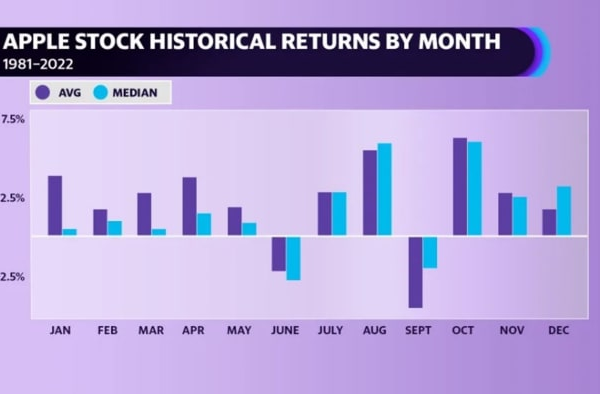App Store 1 Billion Downloads: A Milestone in Mobile History

The App Store reached a remarkable milestone in its history by achieving 1 billion downloads just nine months after its launch. This impressive accomplishment highlights the Apple App Store’s success in revolutionizing the mobile industry and providing a platform for developers and users alike. The billionth app downloaded was the peer-to-peer file sharing app Bump, marking a celebratory moment for its young user, Connor Mulcahey, who won a treasure trove of Apple products valued at over $13,000. As Phil Schiller, Apple’s senior vice president of worldwide product marketing, stated, this milestone is just a glimpse of the App Store’s potential. With over 35,000 apps available, this early achievement set the stage for the ongoing narrative of innovation and growth, navigating challenges such as App Store antitrust issues while captivating users across the globe.
Marking a pivotal moment in Apple’s journey, the celebration of reaching 1 billion app downloads showcases the Shop for Applications’ extraordinary influence on mobile technology. This achievement speaks volumes about the initial success of the digital marketplace, which facilitated a diverse collection of applications, enhancing user experience on iPhones and iPod touches alike. Connor Mulcahey’s thrilling victory as the winner of the countdown promotion added a personal touch to this landmark event. As we reflect on the App Store’s profound impact on software distribution and the evolution of mobile entertainment, it becomes clear that this landmark also foreshadowed ongoing discussions surrounding marketplace regulation and fair competition. The enthusiasm surrounding the first billion apps downloaded paved the way for an impressive trajectory, marked by continued growth and the emergence of significant challenges.
The Milestone of 1 Billion Downloads: A Game-Changer for the App Store
On April 23, 2009, the Apple App Store reached a remarkable milestone with 1 billion downloads within just nine months of its launch. This astronomical achievement was not only a testament to the growing popularity of the iPhone and iPod touch but also showcased the App Store’s vast potential to revolutionize the mobile application landscape. The billionth download was of the peer-to-peer file-sharing app Bump, symbolizing a turning point in how users interacted with mobile applications. Phil Schiller, Apple’s senior vice president of worldwide product marketing, credited customers and developers for this success, emphasizing that the App Store had transformed the mobile industry forever, setting in motion an app-centric world.
The rapid ascent to 1 billion downloads also highlighted Apple’s commitment to creating a platform where developers of all sizes could thrive. Initially offering a curated collection of about 35,000 apps, the App Store quickly became synonymous with innovation and creativity. In contrast to Apple’s earlier digital platforms like iTunes, which celebrated 100 million song downloads in 2004, the App Store’s achievement of 1 billion downloads within such a short timeframe was unprecedented. The implications of this success reverberated across the tech industry, inspiring other companies to create their own app ecosystems, which further entrenched the smartphone as an essential part of daily life.
The Celebration of a Billion Apps: Impact on Apple’s Success
Following the announcement of the 1 billionth app download, Apple celebrated this landmark achievement with its ‘1 Billion App Countdown’ promotion. The winner, 13-year-old Connor Mulcahey from Connecticut, received an impressive array of Apple products totaling over $13,000, including a 32GB iPod touch and a 17-inch MacBook Pro. This promotion not only engaged the users but also highlighted Apple’s dedication to rewarding its community, creating a sense of belonging amongst its consumers. The win also exemplified the demographic reach of the App Store, catering to a wide variety of users, from tech-savvy teenagers to professionals.
The enduring popularity of the App Store only soared after this initial celebration. By March 2012, Apple celebrated an astonishing 25 billion apps downloaded, demonstrating that the 1 billion downloads were just the beginning of an unprecedented growth trajectory. This exponential increase in downloads has translated into enormous revenue, with the App Store facilitating over $643 billion in billings and sales by 2020. The App Store’s curated offerings and unwavering focus on user experience have etched it strongly into the fabric of mobile technology and commerce, making it a hallmark of Apple’s business strategy.
Challenges Faced by the App Store: Antitrust Issues
Despite the immense success of the App Store, its rapid growth has not come without challenges, particularly concerning regulatory scrutiny over antitrust issues. As Apple continues to dominate the market, it has attracted the attention of antitrust regulators both in the United States and internationally. The company’s tight control over its ecosystem—combined with the App Store’s substantial market share—has led to allegations of monopolistic practices that limit competition and stifle innovation among third-party developers. The European Union’s Digital Markets Act is a noteworthy response aimed at curtailing the influence of tech giants like Apple.
This act mandates changes such as the introduction of support for third-party app marketplaces and the ability to sideload apps on iOS devices. It also allowed third-party payment options, providing users with alternatives to Apple Pay, which could open the market to more innovative payment solutions. As European regulators continue to impose fines—such as a 500 million euro penalty related to antisteering rules—Apple is being compelled to adapt its practices. These developments signal a pivotal shift in how the App Store operates and raises questions about the future of app distribution as competition increases, setting the stage for further evolution in the mobile marketplace.
Reflections on the Evolution of the App Store
Looking back at the journey of the App Store since its inception in 2008, it’s clear that it has profoundly transformed the way individuals and businesses interact with technology. Starting with a modest 35,000 apps, the App Store has evolved into a vast marketplace featuring nearly 2 million apps as of 2023. This evolution has facilitated entrepreneurial opportunities for developers worldwide, allowing them to reach consumers directly and innovate in ways that were previously unimaginable. The success stories that have emerged from this platform are numerous, with many developers achieving financial independence and creative fulfillment.
As we celebrate the monumental 1 billion downloads, it is essential to acknowledge the pioneering spirit of the developers who embraced the App Store’s potential early on. Their enthusiasm laid the groundwork for future trends in mobile technology, social networking, e-commerce, and productivity applications. The App Store’s impact extends beyond individual users and developers; it has reshaped the entire digital economy, making the mobile application a cornerstone of modern life. As we anticipate what the future holds for the App Store, the lessons learned from its first billion downloads will undoubtedly influence its next chapter in the evolving landscape of technology.
The Role of Apple’s Marketing Strategies in App Store Popularity
Apple’s ability to create a buzz around new features and achievements, such as the 1 billion downloads milestone, is deeply rooted in its marketing strategies. The company’s adeptness at storytelling and building anticipation around major events has fostered a loyal consumer base. Campaigns highlighting the breadth of apps available not only inform users but also celebrate the creativity of developers. This approach has helped establish a vibrant ecosystem where consumers feel invested in the success of the platform, creating a win-win situation for both Apple and app creators.
Moreover, Apple’s focus on delivering high-quality products and maintaining stringent standards within the App Store has enhanced its reputation. By ensuring that users have access to a variety of carefully vetted applications, Apple has cultivated a sense of trust among consumers. The combination of effective marketing, user engagement, and quality assurance has not only propelled the App Store to early milestones but continues to underpin its success as it navigates new challenges in a rapidly changing digital environment.
Comparative Analysis: App Store’s Adoption versus Competitors
When evaluating the App Store’s impressive acceleration to hit 1 billion downloads, it’s important to consider how its adoption compares to competitors in the mobile app marketplace. Services like Google Play and Windows Phone Store each had their own unique growth trajectories, but none matched the explosive early adoption seen with the App Store. Factors contributing to this success include Apple’s robust marketing strategy, the user-friendly design of the iPhone, and an exclusive lineup of apps that appealed directly to consumers’ desires.
In the months following the App Store’s launch, competitive platforms struggled to replicate its success. While Google Play has since seen tremendous growth, particularly in regions dominated by Android users, initial adoption rates lagged behind those of the App Store. Apple set the bar high early on with creative promotional strategies that revealed the App Store as not just a marketplace but a cultural phenomenon, one that fostered community engagement and user loyalty in a way that competitors have continuously tried to emulate.
The Future of the App Store: Innovations on the Horizon
As technology advances, the future of the App Store holds considerable promise, especially in terms of innovation. Apple has consistently pushed the envelope in mobile technology, and moving forward, we can expect to see further enhancements aimed at improving user experience and expanding developer opportunities. Key trends suggest that artificial intelligence, augmented reality, and enhanced payment systems may play pivotal roles in shaping the next chapter for the App Store. Such innovations could allow for richer, more immersive applications that revolutionize how users interact with their devices.
Moreover, the ongoing regulatory changes and rising competition will likely drive Apple to adopt new strategies to maintain its competitive edge. The implementation of third-party marketplace support as mandated by the EU could pave the way for more diversified app offerings and pricing models. This evolution may redefine the power dynamics within the mobile ecosystem, allowing for more personalized consumer experiences and equal opportunities for all developers. As the App Store looks to the future, its legacy of impressive milestones, starting with the 1 billion downloads, will undoubtedly shape its ongoing evolution.
Community Engagement: The Users’ Perspective on the App Store
The App Store’s journey to 1 billion downloads is not solely about numbers; it encapsulates the perspectives and experiences of millions of users worldwide. Each download tells a story of an individual’s need or desire met through the wide array of applications available. The platform has established a unique sense of community, with users often sharing their favorite apps and experiences with others. Social media platforms and online forums have transformed into spaces for discussions around app discoveries, fostering a culture of sharing and collaboration.
As users engage more actively with the App Store, their feedback plays a significant role in shaping future app development and updates. Developers rely on user reviews and ratings to improve their offerings, which in turn enhances user satisfaction. This ongoing dialogue between consumers and developers exemplifies the collaborative spirit of the App Store, driving both innovation and community spirit. As we reflect on the App Store’s incredible milestone of 1 billion downloads, it serves as a reminder of the collective impact of the global community that has embraced this digital platform.
Frequently Asked Questions
What is the significance of the App Store reaching 1 billion downloads?
The milestone of 1 billion downloads in April 2009 marked a pivotal moment in the App Store’s history, showcasing its rapid success and the vast potential of mobile applications. This achievement not only illustrated the App Store’s appeal to users, but also solidified Apple’s position as a leader in the mobile app industry, turning the iPhone into a versatile device filled with both innovative and popular applications.
Which app was the billionth download from the App Store?
The peer-to-peer file-sharing app Bump was recognized as the billionth app downloaded from the App Store, symbolizing a significant achievement in App Store history less than a year after its launch.
How did Apple celebrate the 1 billion downloads milestone of the App Store?
Apple celebrated the 1 billion downloads milestone by gifting 13-year-old Connor Mulcahey a selection of Apple products valued at over $13,000, including a $10,000 iTunes gift card, highlighting the celebratory nature of significant App Store achievements.
What impact did the first billion downloads have on the App Store’s growth?
The first billion downloads served as a catalyst for unprecedented growth, leading Apple to expand its offerings and reach. By March 2012, downloads soared to 25 billion, reflecting the App Store’s pivotal role in redefining mobile software distribution and usage.
How has the App Store’s success contributed to Apple’s business model?
The App Store’s remarkable success, marked by 1 billion downloads and subsequent growth, has become a cornerstone of Apple’s business model, significantly contributing to its revenues and establishing the company as a powerhouse in the technology sector.
What are the antitrust issues associated with the App Store after achieving 1 billion downloads?
The App Store’s control over its marketplace following the 1 billion downloads celebration has made it a target for antitrust scrutiny globally. Regulators, particularly in the EU, are challenging Apple’s dominance, leading to measures like the Digital Markets Act that aim to increase competition within the App Store ecosystem.
How did Apple respond to the initial success of the App Store post-1 billion downloads?
In response to the overwhelming success indicated by the 1 billion downloads, Apple continued to innovate and expand the App Store, leading to the development of new policies and features that promote app diversity and developer engagement, ultimately paving the way for billions of additional downloads.
What changes have been implemented to the App Store due to antitrust regulations introduced post-1 billion downloads?
Following antitrust regulations, especially from the European Union, changes like allowing third-party app marketplaces and enabling sideloading have been implemented in the App Store, particularly with the release of iOS 17.4 in March 2024, aiming to increase competition and reduce Apple’s monopoly.
| Date | Milestone | Key Event | Winner | Prize | Significance |
|---|---|---|---|---|---|
| April 23, 2009 | 1 Billion Downloads | Bump becomes the billionth app downloaded | Connor Mulcahey | Apple products worth over $13,000 | Demonstrates the potential of the App Store and its rapid success. |
| March 2012 | 25 Billion Downloads | Continued success of App Store | Signifies growth and dominance of Apple in the app ecosystem. | ||
| 2020 | $643 Billion in Sales | Revenue from App Store | Highlights the financial impact of the App Store on Apple’s overall revenue. | ||
| March 2024 | App Store Changes | iOS 17.4 introduces third-party markets | Response to regulatory scrutiny; opens up competition. | ||
| April 2025 | EU Fine | Apple fined for antisteering rules violation | Illustrates the challenges faced by Apple due to its market position. |
Summary
The App Store reached an astounding 1 billion downloads, solidifying its status as a game changer in the mobile app landscape just nine months after its launch. This remarkable achievement signifies not only the rapid adoption of Apple devices but also a pivotal moment in the evolution of mobile applications. With contributions from innovative developers and a wide array of available apps, the App Store has transformed how users interact with their devices, ushering in a new era of mobile technology. As we look toward the future, the App Store continues to adapt, facing regulatory challenges while remaining a dominant force in the app marketplace.
You may also like

iOS App Store Success: A Milestone in Digital Distribution


First Email from Space: The Macintosh Portable’s Legacy
Archives
Calendar
| M | T | W | T | F | S | S |
|---|---|---|---|---|---|---|
| 1 | ||||||
| 2 | 3 | 4 | 5 | 6 | 7 | 8 |
| 9 | 10 | 11 | 12 | 13 | 14 | 15 |
| 16 | 17 | 18 | 19 | 20 | 21 | 22 |
| 23 | 24 | 25 | 26 | 27 | 28 | |